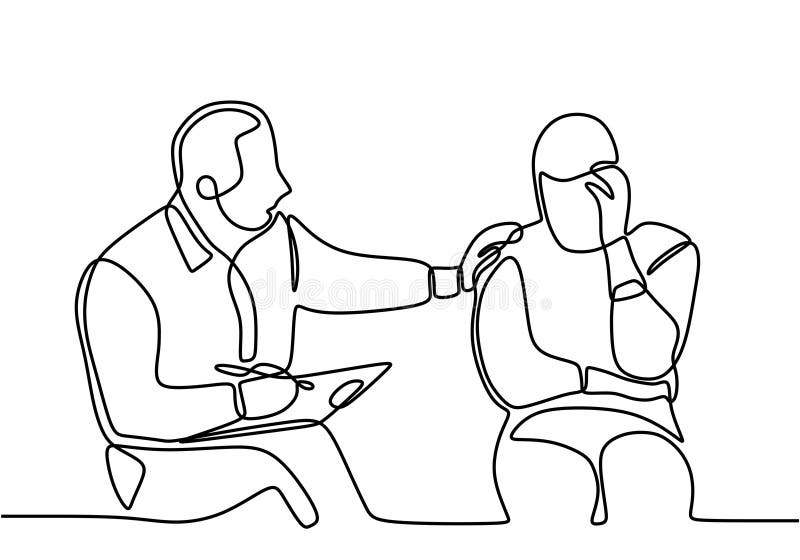Psych Therapy: A Comprehensive Guide to Techniques and Results

Cognitive-Behavioral Therapy
Cognitive-Behavioral Treatment (CBT) is a commonly used psychotherapeutic approach that concentrates on identifying and modifying inefficient reasoning and behavior patterns. Created in the 1960s by Aaron T. Beck, CBT combines cognitive and behavior theories to attend to numerous mental health problems, consisting of anxiety, anxiety, and stress-related conditions. The property of CBT is that maladaptive thoughts add to emotional distress and maladaptive actions. By restructuring these ideas, people can achieve considerable improvements in their emotional health and day-to-day performance.
Strategies such as cognitive restructuring, direct exposure treatment, and skill-building exercises are commonly used. Cognitive restructuring includes difficult and changing adverse idea patterns, while exposure therapy aims to lower worry and anxiety through progressive exposure to feared objects or scenarios.
Evidence-based research supports the efficacy of CBT for a wide variety of emotional conditions - Best Psychologist in Delhi. Its focus on skill acquisition and self-help techniques empowers clients to continue development separately after therapy wraps up. The versatility and performance of CBT have actually made it a keystone in contemporary psychotherapeutic practice
Psychodynamic Strategies
Rooted in the early theories of Sigmund Freud, psychodynamic methods concentrate on discovering the subconscious mind and its impact on habits and emotions. These approaches intend to uncover covert thoughts and sensations that might be driving maladaptive behaviors and mental distress. Central to this strategy is the concept of inner conflict, typically originating from unresolved previous experiences, specifically those from childhood years.
Therapists utilizing psychodynamic techniques utilize numerous essential techniques, including complimentary association, where clients are urged to talk easily to reveal subconscious product, and dream evaluation, which interprets the hidden content of dreams. Furthermore, the expedition of transference and countertransference characteristics within the healing partnership is crucial. These communications can supply insights right into the person's internal world and relational patterns.
Psychodynamic treatment is typically longer-term compared to other methods, offering a deep and comprehensive understanding of the individual's mind. Research shows that it can be specifically efficient for intricate mental health and wellness concerns, such as character problems and persistent anxiety. By cultivating self-awareness and emotional understanding, psychodynamic treatment looks for to bring subconscious product to awareness, enabling individuals to achieve purposeful and enduring modification in their lives.
Humanistic Strategies
Structure on the structures laid by psychodynamic strategies, humanistic strategies use an unique point of view concentrated on specific possible and self-actualization. Coming from the mid-20th century, these methods prioritize the intrinsic goodness and development possibility of individuals, emphasizing an all natural sight of human experience. Secret figures such as Carl Rogers and Abraham Maslow have actually dramatically influenced this therapeutic method, which incorporates methods like client-centered treatment and Gestalt treatment.
Client-centered therapy, developed by Rogers, plays an essential function in humanistic strategies. It counts on the therapist providing a setting of unconditional favorable regard, compassion, and congruence. This cultivates a safe room for clients to over at this website discover their feelings and experiences without judgment, facilitating self-discovery and individual growth. The specialist's role is more of a facilitator than an authority, urging clients to harness their internal resources for recovery.
Gestalt treatment, another essential humanistic method, emphasizes present minute awareness and the combination of body and mind. By concentrating on the "present moment," clients get better insight right into their existing emotions and behaviors. Methods such as role-playing and directed visualization are usually utilized to aid clients obtain a deeper understanding of themselves, eventually bring about enhanced self-awareness and gratification.
Integrative Treatments
Integrative treatments represent a synthesis of various restorative strategies customized to fulfill the unique needs of each client. This technique recognizes the intricacy of human psychology and the complex nature of psychological health problems. By integrating aspects from various colleges of psychiatric therapy-- such as cognitive-behavioral treatment (CBT), psychodynamic treatment, and humanistic strategies-- integrative treatments supply an even more holistic and flexible therapy standard.
Practitioners of integrative therapy analyze each customer's details demands, symptoms, and personal background to design a tailored treatment strategy. This personalized method boosts the capacity for therapeutic success by addressing the origin of emotional distress and advertising general well-being. Methods may consist of mindfulness exercises, cognitive restructuring, and emotional handling, each picked to target different facets of the client's problems.
In addition, integrative therapies emphasize the restorative connection, watching the client-therapist bond as a vital part of efficient therapy. This relationship cultivates an encouraging environment where customers really feel risk-free to check out and resolve their problems. The versatility of integrative treatments makes them suitable for a wide range of conditions, including anxiousness, clinical depression, injury, and social difficulties, thus boosting their applicability and effectiveness in see page varied scientific settings.

Gauging Therapy Outcomes
Reviewing the performance of psychotherapy is crucial for both medical professionals and customers to make certain that the therapy is yielding the wanted outcomes. To accomplish this, different approaches and tools are employed to determine therapy results methodically. Standard assessment instruments, such as the Beck Depression Supply (BDI) and the Generalized Stress And Anxiety Problem 7 (GAD-7), give quantitative dig this information on signs and symptom severity and changes gradually.
In enhancement to standard devices, qualitative methods like customer self-reports and clinical interviews offer important insights into the personal experiences and perceived progress of customers. Routinely scheduled assessments, usually at the beginning, omphalos, and end of therapy, help in tracking the trajectory of improvement or recognizing locations needing adjustment.
Result measurement is not limited to symptom decrease; it likewise includes functional improvements in daily life, such as far better social partnerships, boosted work productivity, and enhanced total wellness. Modern improvements in digital health have actually introduced mobile apps and on-line platforms that help with real-time tracking and responses, further refining the assessment procedure.
Eventually, a comprehensive approach to determining therapy end results guarantees that therapeutic treatments are effective, reliable, and tailored to fulfill the private demands of clients, consequently enhancing the general therapeutic experience.
Verdict
Humanistic strategies concentrate on individual development and self-actualization, while integrative treatments incorporate multiple techniques for customized treatment strategies. Evaluating treatment results through standardized evaluations and qualitative approaches makes sure a detailed understanding of effectiveness, eventually assisting customers toward withstanding psychological health and wellness improvements.
From the organized strategy of Cognitive-Behavioral Treatment (CBT) to the deep exploration of the unconscious in psychodynamic therapy, each approach brings one-of-a-kind benefits. Its emphasis on ability procurement and self-help strategies equips customers to proceed development independently after treatment wraps up (Best Psychologist in Delhi). Trick numbers such as Carl Rogers and Abraham Maslow have actually substantially affected this healing method, which incorporates methods like client-centered treatment and Gestalt treatment
